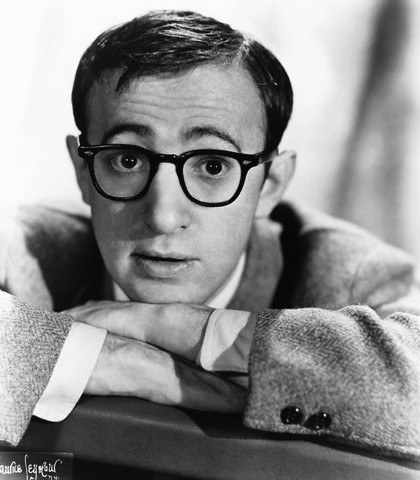Woody Allen has picked his six best films for a British newspaper.
They are: “Purple Rose of Cairo,” “Match Point,” “Bullets Over Broadway,” “Zelig,” “Husbands and Wives,” and “Vicky Cristina Barcelona.”
Is he wrong or right? I’d rank them a different way, and start with a different film: “Hannah and Her Sisters” is Woody’s masterpiece from the 1980s, a great summing up of “Annie Hall,” “Manhattan,” “Interiors,” and all the films that come in between 1977 and 1986. For me “Hannah and Her Sisters” is the touchstone.
(Don’t knock “Interiors,” either. Maureen Stapleton, Geraldine Page, and E.G. Marshall are outstanding.)
Woody is right about “Zelig.” It’s a masterpiece. The idea of a Zelig, a person who’s kind of everywhere and exists in a vacuum, has been adopted into the culture. Plus, “Zelig” very cannily addresses the idea of a publicly created celebrity and we will tear that person down eventually. Woody was prescient.
There is some debate about “Match Point” vs. “Crimes and Misdemeanors.” The latter is crude in its execution, and still shocks. Are they really going through with this murder? “Match Point” is more refined, which maybe is why Woody likes it so much. I do, too. The same themes were repeated in the less good, “Cassandra’s Dream.”
He is also correct about “Bullets Over Broadway,” but shouldn’t forget its companion piece, “Radio Days.” Dianne Wiest is sensational in each. I would put into this category “Broadway Danny Rose,” which is a little gem that shouldn’t be considered a throwaway. (The stuttering ventriloquist is worth the whole movie.) Quite the opposite. And it’s Mia Farrow‘s best work, which probably Woody doesn’t want to think about.
“Vicki Cristina Barcelona” is quite rightly on the best list, as is “Purple Rose of Cairo.” The latter breaks the fourth wall and brings characters off a screen into “reality.” It is oft-copied. So is “Everyone Says I Love You,” in which characters broke into song. Watch that film again. It’s another one that was derided, then imitated frequently. It’s full of good madcap stuff, too, including a hockey game in the foyer of a Park Avenue townhouse.
What did Woody leave out? “Alice,” is kind of a lost jewel, and works even more in light of the recent Wall Street excesses. He dismisses his early comic work in “Bananas,” “Love and Death,” and “Sleeper.” And there’s no discounting when we really fell in love with him, over “Annie Hall” and “Manhattan.”
Woody has enormous CV that also includes his segment of “New York Stories,” films like “Small Time Crooks” and “Whatever Works.” There’s also fondness for “Shadows and Fog,” which is really a short story, and “Stardust Memories” (which makes mention of his “earlier, funnier comedies.”)
I have a personal thing for “Manhattan Murder Mystery,” by the way, because it’s the last one with Diane Keaton. Alan Alda is quite funny in it. The ones I can’t really watch again: “Curse of the Jade Scorpion,” “Sweet and Lowdown,” “September,” “Another Woman.”
Woody picked “Husbands and Wives,” which I detested for its shaky camera work and plot line that seemed to warn Mia Farrow about the approaching scandal. The one that still fascinates me: “Deconstructing Harry,” which is as much of a send up of Philip Roth as “Zelig” was of Warren Beatty and “Reds.”
So is Woody right? What are your favorites of his films?

